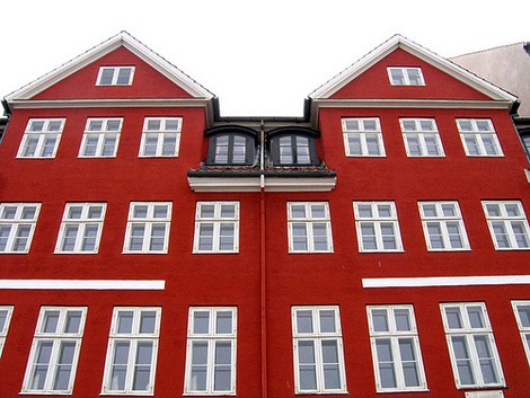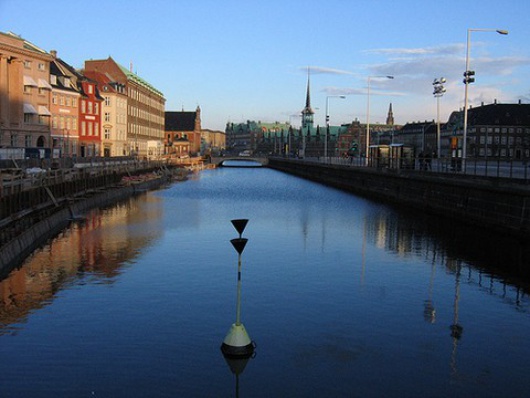Turkish love story on Danish shores
Published on
With 3.8 million Turkish immigrants in the EU, we head to Denmark with the seventh largest Turkish population in Europe. Aydin Ozturk, 50, settled in Odense with a Danish partner and found his place in society
April 16, 1980. A private ship belonging to the wealthy Turkish Sadikogullari family docks on the southern Danish coast of Nakskov. Aydin Ozturk, a 23-year-old crew member, is already struck by the differences between his home city of Istanbul, the largest in Turkey, and this little town in Denmark. With a population of 5 million people (today 15 million), Istanbul bursts with people and vehicles. Here, he can only spot a couple of cars and people making their way to work. The city signs add to the alienation. But when he pops into a little grocery store on the corner a little while later, it is love at first sight with a beautiful blonde shopkeeper.
 Aydin and Liz translated the language of love into broken English, and kept in touch when he returned to Istanbul. 18-year-old Liz moved to Istanbul, having convinced her prejudiced parents of her feelings for this Turkish man. They married within two months. The military takeover in Turkey in 1980 meant the young couple returned to near Liz’s parents in Nakskov. She fell pregnant and Aydin went on a one-year welding course, leading to a job at a shipyard in Copenhagen. In his spare time, he played professional football in the third league.
Aydin and Liz translated the language of love into broken English, and kept in touch when he returned to Istanbul. 18-year-old Liz moved to Istanbul, having convinced her prejudiced parents of her feelings for this Turkish man. They married within two months. The military takeover in Turkey in 1980 meant the young couple returned to near Liz’s parents in Nakskov. She fell pregnant and Aydin went on a one-year welding course, leading to a job at a shipyard in Copenhagen. In his spare time, he played professional football in the third league.
Changing families
Migrant families are changing with time. The first generation still prefer to live in the 1960s of Turkey, although things changed a great deal since they have left. The second generation feel as if they fell in between when they came to Denmark as teenagers. Liz went to university in 1992, becoming an English and German teacher, and she moved their two daughters to Turkey for their education in 2000, whilst Aydin worked in Denmark in private companies. Four years later, the family reunited and moved to Odense.
The limited number of adaptation programmes could not help Turkish immigrants integrate fully in the new culture they found themselves in, with Aydin being one of the exceptions. 'I played darts with my father-in-law, trying to learn Danish with his help,' the 50 year old says. His home is a perfect mixture of two cultures; Turkish carpets lie next to Swedish Ikea furniture, and Danish designer lamps hang in a corner. The smell of Turkish coffee fills the air as the family watch the Danish news. They have Turkish channels as well, thanks to the satellite dish outside. 'I never stopped working and met as many Danes as possible to improve my language and social life.'
 The new measures the government have taken are remarkable. Bunyamin Simsek, a city councillor in Arhus, explains that the Danish government
The new measures the government have taken are remarkable. Bunyamin Simsek, a city councillor in Arhus, explains that the Danish government
take family reunions into account. 'Since 2002, every person planning to migrate to Denmark has to take a Danish culture and language exam and follow a language course for three years. Municipalities also offer social activities for their better integration.'
Creating places in society
These programmes have already proven to be successful for the newcomers. According to Statistics Denmark, a Danish governmental organisation under the Ministry of Economic and Business Affairs, the employment rate of the immigrants rose remarkably. An interview carried out by the Institute for Market Analysis proved that 76% of the private employers are content with the new immigrants. This percentage reaches 79% in public workplaces.
'I never spent too much time with Turks,' Aydin finishes between sips of his coffee. 'If you stay too close, you cannot adapt to the new culture. Many immigrants here are unemployed. I don’t like to spend time at the coffee house all day playing cards. You have to make sacrifices be the best in your job. If you are successful, everybody respects you, no matter where you are from.'
The author is a 25 year old Erasmus Mundus Masters in Journalism and Media student living in Amsterdam
*Data in subtitle according to the report of the independent commision in Turkey, 2004



